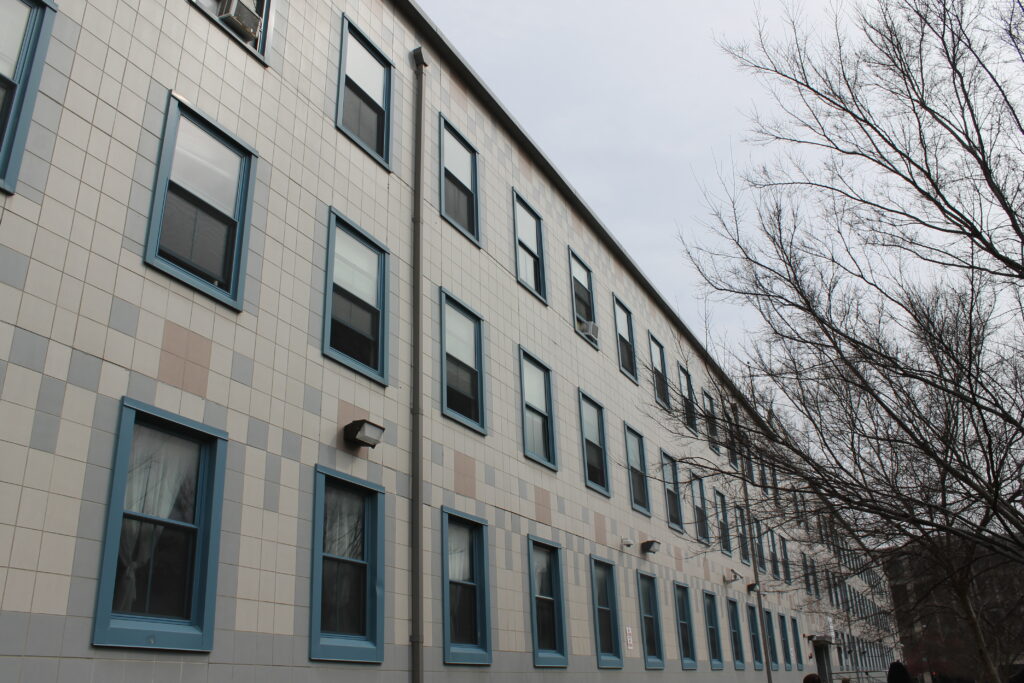On our way back to the projects, we saw a guy standing on the porch of a house. He called out, “Man, I need help.”
I asked my friend, “Who is he?”
“You don’t know him,” my friend said. “He moved here while you were in jail.”
He had previously lived in the crime-ridden Calliope Projects, so everyone called him Calio.
My buddy pointed to me and told Calio, “He’s the dude I told you about who was locked up.”
I asked Calio, “What you need help with?”
He said, “Keisha in the house. She refused to go to the Superdome without me and I didn’t want to leave.”
“So what?” I said, and he told me, “She my baby’s mama and she real pregnant. She in pain and can’t get out of the house. We gotta find a way to get her out.”
Keisha was in their split-level home a few doors over; Calio had come to this porch to seek help, because it was on higher ground.
Calio climbed into our boat and we paddled to the house to help Keisha. We pulled over to the steps so that the water level would be only up to our chests.
When we opened the front door, a torrent rushed in, drenching toys that were scattered about. Keisha’s two kids—8 and 12—were upstairs in a bedroom, while Keisha lay on the sofa screaming, her belly swollen like a big old beach ball, her body wracked with labor pains.
We called up to the kids, “You all right?”
They yelled back, “Yeah, but we scared!”
We told them, “Stay up there. Don’t come down here.”
There was too much water to get Keisha out through the front. So I said to Calio, “I don’t know how to deliver a baby if it comes out. Do you?”
He said no, so I told him, “Then we gotta get Keisha outta here! Do you have some tools we can use to break the roof in?” Helicopters were buzzing overhead like swarms of bees; if we could get on the roof, we could try to get one to help us.
Calio said there were tools, but that they were out back in the shed.
We ran around looking for a way out to the shed.
A door in the kitchen looked like our best option, so we pushed it open and waded through chin-high water. In the shed we found a sledgehammer, crowbar, axe, power drill (though we had no power), and a big, old 24-foot ladder. We grabbed all that stuff and held it over our heads, while battling waves to get back to the house.
The second we got everything inside, we set up the ladder in the middle of the living room.
Then I asked, “Who gonna get up there first?” We just looked at each another. We were all big guys, weighing around 240 pounds, except Calio—he was a slim, little guy.
Finally I said, “I’ll get up there.” I mounted the ladder with a long crowbar in hand, and then I took a whack at the ceiling. A chunk the size of a toaster crashed to the floor. I felt like I was about to break an Olympic record for banging a roof in.
Keisha was hollering and writhing the whole time, “Help me! Get me outta here!” The more she hollered, the more it made me move my body, as though it were wild dance music, instead of the piercing screams of a woman thrashing in pain. Caught up in Keisha’s agony, I banged harder and harder.
It took the next four hours of us guys taking turns to beat at that ceiling.
In contrast to our hammering, Keisha’s crying, and the distant hum of helicopters, the kids were disturbingly quiet. We worried how they were doing, but we didn’t want to set them off by asking. We had to keep pounding away.
At last we broke through to a sliver of slate-colored sky. We continued to alternate going up the ladder, while two of us held it below. We threw down dry wall, plywood, insulation, and roof tiles, and the hole grew bigger and bigger.
Finally the opening became large enough for Calio to climb to the top of the ladder, poke his head and arms through the hole, and wave a white sheet; we stood below holding the ladder as tight as we could.
We clung to that ladder, waiting and praying for help to come.






